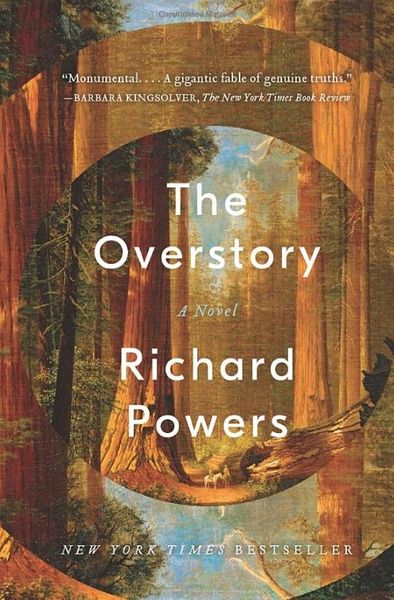
The Overstory A Novel
The Overstory, winner of the 2019 Pulitzer Prize in Fiction, is a sweeping, impassioned work of activism and resistance that is also a stunning evocation of--and paean to--the natural world. From the roots to the crown and back to the seeds, Richard Powers's twelfth novel unfolds in concentric rings of interlocking fables that range from antebellum New York to the late twentieth-century Timber Wars of the Pacific Northwest and beyond. There is a world alongside ours--vast, slow, interconnected, resourceful, magnificently inventive, and almost invisible to us. This is the story of a handful of people who learn how to see that world and who are drawn up into its unfolding catastrophe.
Reviews
Doug Belshaw@dajbelshaw
Frederik De Bosschere@freddy
Air Abhipraya@air
Daphne Li-Chen@daphne
Jacqui Spears@jcspears
Emma Lechner@emmyofthevalley
farah @honeyfig
Brett Seybert@brseybert
Stephanie Bars@goldneon
Jayme Cochrane@jamesco
Maurice FitzGerald@soraxtm
John Vetter@johnvetter
Andrew John Kinney@numidica
Martin@mrtnmgs
Amy Place@amy_place
E J Doble@ejdoble
Dora Tominic@dorkele
Tuago@iagomr
Jonathan Sackheim@sackheim
Jimmy Cerone@jrcii
Landon Alder@landonalder
Sarah Metcalf@skmetcalf
Siya S@haveyoureadbkk
Philip Rosenbaum@icanread
Highlights
Jamie Griffin@jag
Jamie Griffin@jag
Daphne Li-Chen@daphne
Page 144
Daphne Li-Chen@daphne
Page 133
Beatrix@yurtletheturtle
Beatrix@yurtletheturtle
Page 619
Beatrix@yurtletheturtle
Page 619
Beatrix@yurtletheturtle
Page 615
Beatrix@yurtletheturtle
Page 615
Beatrix@yurtletheturtle
Page 610
Beatrix@yurtletheturtle
Beatrix@yurtletheturtle
Page 587
Beatrix@yurtletheturtle
Page 581
Beatrix@yurtletheturtle
Page 566
Beatrix@yurtletheturtle
Page 529
Beatrix@yurtletheturtle
Page 515
Beatrix@yurtletheturtle
Page 506
Beatrix@yurtletheturtle
Page 505
Beatrix@yurtletheturtle
Beatrix@yurtletheturtle
Page 495
Beatrix@yurtletheturtle
Page 477
Beatrix@yurtletheturtle
Page 443
Beatrix@yurtletheturtle
Page 435
Beatrix@yurtletheturtle
Page 409